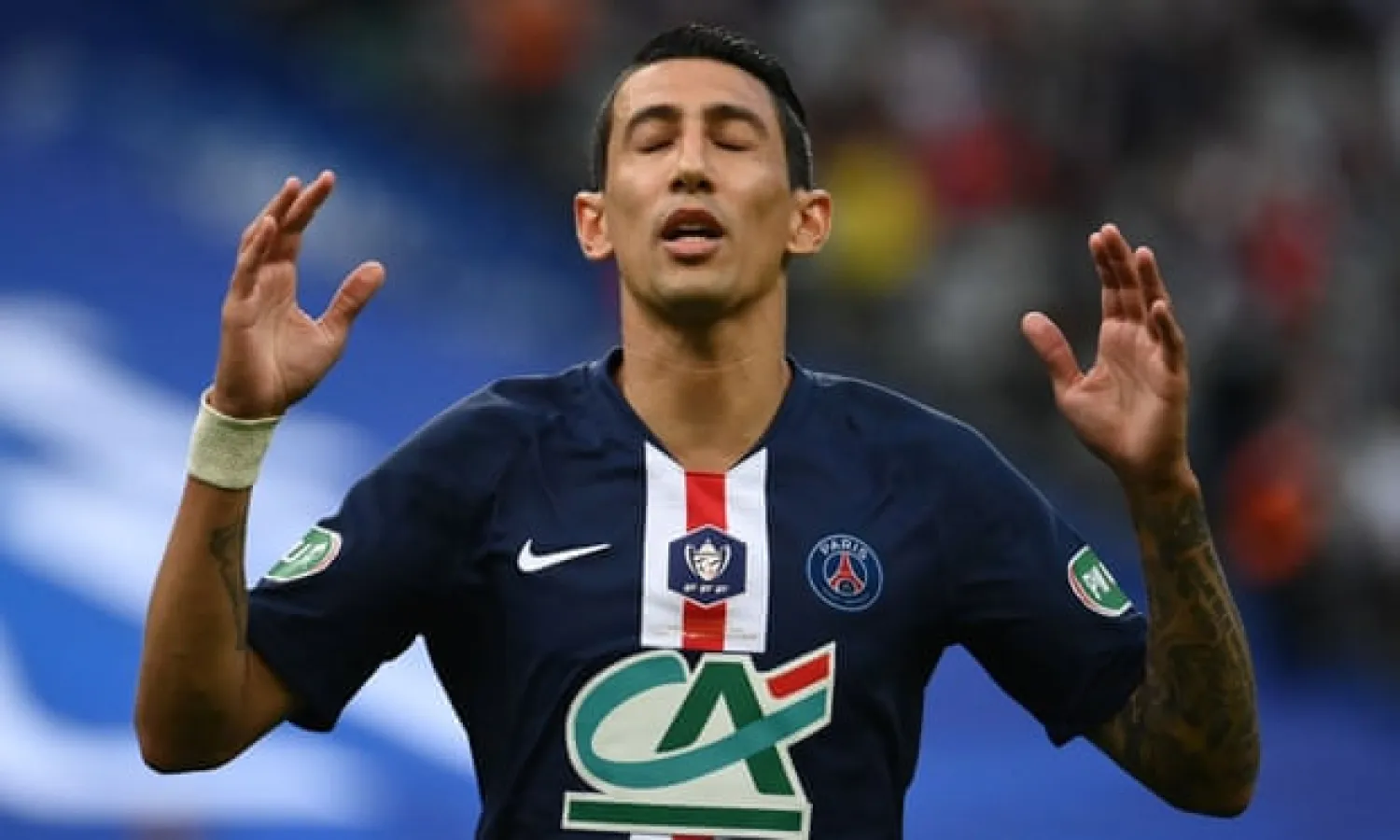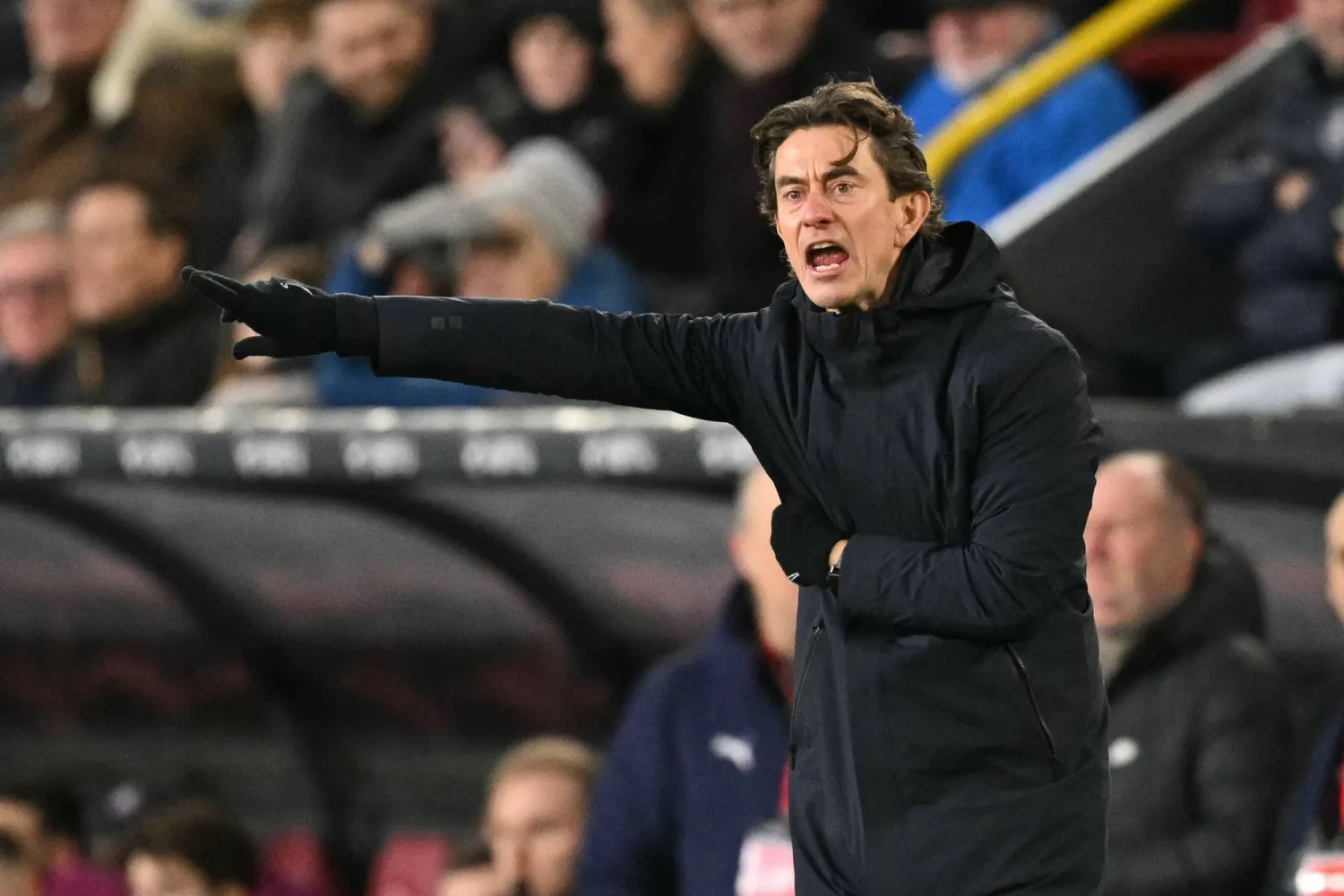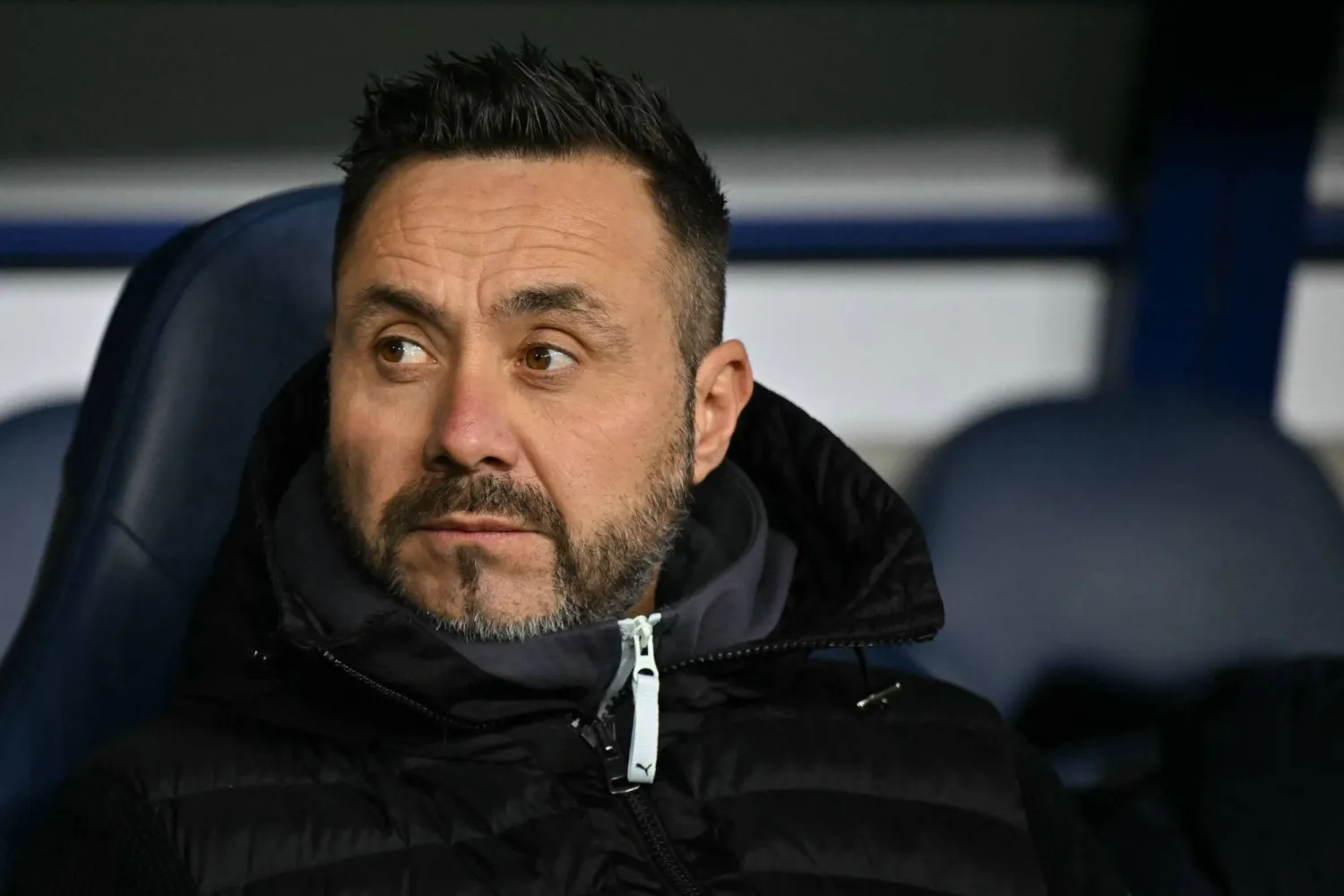The critical moment of Lionel Messi’s international career, perhaps, came a little after 1.30pm on a Saturday afternoon in Brasília. Argentina led Belgium 1-0 in their 2014 World Cup quarter‑final. They were in control, playing well. The forward line, as usual, felt a mismatch of extremely talented but not particularly complementary players, but with a solid and well-balanced midfield, it didn’t really seem to matter. Then Ángel Di María pulled his hamstring.
Di María had a vital role in Alejandro Sabella’s side. Javier Mascherano mopped up in front of the back four. Lucas Biglia scuttled around alongside him. And to the left of the three Di María shuttled to the forward line, the vital link between two otherwise disparate units. His role wasn’t glamorous. He was easily overlooked. But once he was gone, his importance became obvious. Enzo Pérez, a far more defensive presence, replaced him. Argentina won the game and went on to reach the final, but in the five hours of football they played at that World Cup after Di María’s injury, they didn’t score another goal.
In football’s modern world of glitz and glamour, when it feels as though the super-clubs prefer to sign celebrities rather than submit to the rigours of following a coherent tactical plan, there is an irony in Di María finally beginning to be appreciated at the club that, for so long, was the market leader in placing star quality over structure – and the reverse of that is also true: Di María’s increasing prominence is evidence of PSG’s growing maturity. If they are to win the Champions League, it will almost certainly require Di María to keep Joshua Kimmich quiet and to exploit Bayern Munich’s aggressively high line.
For years, it seems, Di María has been underappreciated. Perhaps it’s because he doesn’t look much like a footballer (although he does, from certain angles, bear a striking resemblance to Franz Kafka). He does not have the eye-catching footwork or goals return of many of his teammates. But he does have a remarkable capacity to link one line of a team to another, starting either as a forward or in midfield, and functioning as a bridge from one to the other.
In Tuesday’s 3-0 semi-final victory over RB Leipzig, he set up two goals with impeccable crosses and scored the other. But more than that was what he ensured didn’t happen. Against Atalanta, when he had been suspended, a gulf had opened between the front three and the other seven outfielders. Against RB Leipzig, PSG pressed more and the team was far more compact.
But this wasn’t even the first Champions League semi-final Di María has dominated. In the second leg in 2014, it was, as much as anything else, his countering ability, his intuition of when to carry the ball and when to offload it, that allowed Real Madrid to unpick Bayern as they won 4-0 at the Allianz.
He was the Uefa man of the match in the victory over Atlético in the final as well. Di María had made decisive contributions to the last two games as Madrid clinched la décima, and yet that summer he left. The club has always claimed it was because of the excessive demands of his agent – but that agent is Jorge Mendes, which made Di María’s continued presence at Madrid problematic after the departure the previous summer of José Mourinho, who had lobbied hard for his signing in 2010. Before the final, Madrid asked him not to risk his hamstring as they wanted to sell him to make way for the more obviously marketable James Rodríguez, who bears no resemblance to any gloomy Bohemian modernist.
So, having few options, Di María ended up at Manchester United, where he had never really wanted to go. The tendency is to remember Di María’s loss of form and the acrimony that surrounded his departure. But he started the season well and, in 20 league starts, registered three goals and a remarkable 10 assists. The downturn was perhaps in part caused by his frustration at the restrictions placed on him by Louis van Gaal, followed by a break-in at his home that left him fearing for the safety of his family. Di María is naturally introspective and that, combined with struggles with the language, contributed to a general loss of confidence and morale.
With Argentina, the situation is more complicated. Di María has won more than 100 caps, some achievement given the wealth of attacking options available to them, but he has undoubtedly been tainted by the years of failure, and the strangely stodgy football a concatenation of brilliant attacking talent habitually produces. There’s no obvious reason that the front three of Lionel Messi, Sergio Agüero and Di María that won Olympic gold in 2008 shouldn’t have brought similar success in the senior game, but it never quite has.
While manager after manager has seen Di María and his versatility as part of the solution, there’s a constituency of fans and journalists who have begun to wonder if he’s actually part of the problem. And perhaps he is, but it’s also the case that his unflashy style makes it harder instantly to recall a goal or a run or a pass that could be entered as evidence for the defense.
And so to France, where PSG’s resources so dwarf everybody else’s that statistics become so distorted as to be meaningless. Di María’s goals return has shot up from one every seven games in the rest of his career to one in every three – but so it should. But far more significant is his less conspicuous contribution.
Di María is one of the very few to have played with Messi, Cristiano Ronaldo and Neymar. He has thrived with each of them. He is unselfish, makes covering runs, creates space and compensates for their sporadic approach to pressing. It is easy to see why coaches, other than Van Gaal, appreciate an industrious player who naturally balances a side. Then, every now and again, he has a game like he did against Leipzig, and offers a reminder that he’s also an exceptional talent in his own right. To borrow from John Milton, they also serve, who only run about lots in tactically intelligent and selfless patterns.
The Guardian Sport









